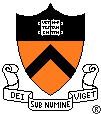
PROGRAM in ROBOTICS AND INTELLIGENT SYSTEMS

 The Certificate Program in Robotics and Intelligent Systems is designed for Princeton undergraduate students who are interested in pursuing careers or graduate education in three general areas:
The Certificate Program in Robotics and Intelligent Systems is designed for Princeton undergraduate students who are interested in pursuing careers or graduate education in three general areas:
- The analysis, design, and development of systems that automate manufacturing, transportation, health care, environmental stewardship, scientific research, and other activities;
- The creation of systems for learning, adaptation, decision-making, identification, estimation, and control using concepts drawn from cognitive and biological sciences.
- The understanding of human intelligence from the perspective of neuroscience and computation.
New industries and organizations depend increasingly on the interplay between engineering, computing, and the life sciences. Innovations and inventions require multi-disciplinary approaches and entrepreneurship, as well as grounding in theory and practice, in topics that may not be covered by a single department. The program offers an integrated set of core and elective courses, introducing students to fundamental concepts, providing depth in specific fields of interest, and setting the stage for further achievement. Students are encouraged to expand their experience through summer internships with companies, government agencies, and university laboratories.


Admission to the Program
The program is open to juniors and seniors at Princeton University who have a satisfactory background in mathematics, science, and computing. Students should have successfully completed:
- Mathematics through MAT 202 or 204,
- The AB Science and Technology Distributional Requirement or the BSE Freshman Science Requirement,
- and COS 126, ORF 201, or an equivalent computing course.
A student planning to earn the program certificate should complete the Student Profile as early as possible and no later than the mid-point of the fall term of his or her senior year.
Program of Study
A concentrator in this program must satisfy both program and departmental requirements. The program for each student is worked out by the student and his or her departmental adviser. The program requirements are as follows:
1. All students must take six courses, including three core courses and three electives. To qualify for the certificate, a minimum grade average of B- in the six program courses is required. In some cases, a course can fulfill both a certificate program requirement and a regular departmental requirement (contact program director for details).
Core Courses (one from each group)

Laboratory (1)
- ELE 201 Introduction to Electrical Signals and Systems
- ELE 203 Electronic Circuits
- ELE 206/COS 306 Introduction to Logic Design
- MAE 224 Engineering Sciences Laboratory
- PHY 210 Experimental Physics Seminar
Control Systems (1)
- CHE 445 Process Control
- ELE 483 Feedback Systems
- MAE 345 Robotics and Intelligent Systems
- MAE 433 Automatic Control Systems
- MAE 434 Modern Control
Cognition, Language, and Decision-Making (1)
- PSY 255 Cognitive Psychology
- PSY 258 Introduction to Neuroscience: Brain and Behavior
- PSY 259 Introduction to Cognitive Neuroscience
- PSY 321/WWS 312 The Psychology of Decision Making and Judgment
- PSY 322 Human-Machine Interaction
- PSY 330 Introduction to Connectionist Models
Elective Courses (maximum of two from the same department to satisfy the requirement)
- CEE 362 Structural Dynamics and Earthquake Engineering
- CEE 460 Risk Assessment and Management
- CEE 472 Hydrometeorology and Remote Sensing
- CHE 442 Design, Synthesis, and Optimization of Chemical Processes
- CHE 448 Introduction to Nonlinear Dynamics

- COS 217 Introduction to Programming Systems
- COS 323 Computing for the Physical and Social Sciences
- COS 325 Transforming Reality By Computer
- COS 340 Reasoning about Computation
- COS 402 Artificial Intelligence
- COS 426 Computer Graphics
- COS 429 Computer Vision
- COS 436 Human-Computer Interface Technology
- COS 451 Computational Geometry
- COS 461 Computer Networks
- COS 487 Theory of Computation
- ELE 211 Digital Systems and Microprocessors
- ELE 302 System Design and Analysis
- ELE 382 Distributed Algorithms and Optimization Methods for Engineering Applications
- ELE 488 Image Processing and Transmission
- LIN 280 Computational Linguistics
- LIN 301 Phonetics & Phonology
- LIN 303 Linguistic Semantics (also PHI 345)
- LIN 306 The Structure & Meaning of Words
- LIN 360 Linguistic Universals and Language Diversity
- LIN 412 Advanced Syntax

- MAE 206 Introduction to Engineering Dynamics
- MAE 321 Engineering Design
- MAE 322 Mechanical Design
- MAE 331 Aircraft Flight Dynamics
- MAE 332 Aircraft Design
- MAE 341 Space Flight
- MAE 342 Space System Design
- MAE 412 Microprocessors for Measurement and Control
- MOL 408 Cellular and Systems Neuroscience
- MOL 437 Computational Neurobiology and Computing Networks
- ORF 245 Fundamentals of Engineering Statistics
- ORF 301 Elements of Interactive Computer Graphics
- ORF 307 Optimization
- ORF 309 Probability and Stochastic Systems
- ORF 311 Optimization under Uncertainty
- ORF 405 Regression and Applied Time Series
- ORF 406 Statistical Design of Experiments
- ORF 411 Operations and Information Engineering
- ORF 467 Transportation

- PHI/ELE 218 Learning Theory and Epistemology
- PHI 312 Intermediate Logic
- PHI 317 Philosophy of Language
- PHI 322 Philosophy of the Cognitive Sciences
- PHI 340 Philosophical Logic
- PSY 306 Memory and Cognition
- PSY 311 Rationality and Human Reason
2. A senior independent work project or thesis whose topic is relevant to the program and acceptable to the program committee must be completed and presented to the committee. A minimum grade of B- for the project or thesis is required to qualify for the certificate.
3. Close collaboration with faculty is expected. Program students are expected to demonstrate strong academic performance. Program courses may not be taken on a pass/D/fail basis unless that is the only grading alternative for the course.
4. Program students must fill out the Student Profile form at the beginning of each year in which they are members of the program. This is especially important during the senior year to assure that requirements for the certificate will be met by the end of the year.
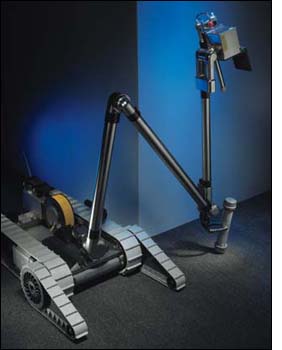
Seminars on Robotics and Intelligent Systems
Seminars of interest to an undergraduate audience are announced to all interested students. Typical topic areas include:
- Applications of Neural Networks
- BioInformatics
- Expert Systems in Engineering and Science
- Computer Visualization
- Neuroscience
- Real-Time Systems
- Robotic Devices and Vehicles
- Micro-Mechanical Systems
- Applications of Optimal Control
Advanced students are encouraged to attend regularly scheduled departmental seminars to further enrich their understanding of the field.
Typical Undergraduate Independent Research Projects
Undergraduate projects usually are undertaken for Independent Work or Senior Thesis credit, and opportunities exist for summer and work-study projects. These projects typically last for one or two academic terms, although they may extend over greater periods of time. Students work closely with faculty and staff members, and they have access to sophisticated computers and experimental facilities while conducting their independent research. Topics for past and future projects include the following:
- Optimal design of reactor systems
- Robust control of chemical processes
- Reaction networks to model immune response
- Control based on microscopic/stochastic simulators

- Smart buildings
- Active structural control
- Control of water resources
- Earthquake engineering
- Remote sensing
- The role of simplicity in reasoning by machines
- Machine learning, including game playing, photo identification, and semantic identification
- Using DNA for parallel computation
- Applications of neural networks and other classifiers to image signal processing problems, such as character recognition and image segmentation
- Modeling and analysis of behavior of groups of animals (insects, birds, fish, etc.)
- Modeling and analysis of complex control problems in materials processing applications
- Algorithms for video analysis and manipulation
- Analysis, simulation, and applications of algorithms for pattern recognition and machine learning
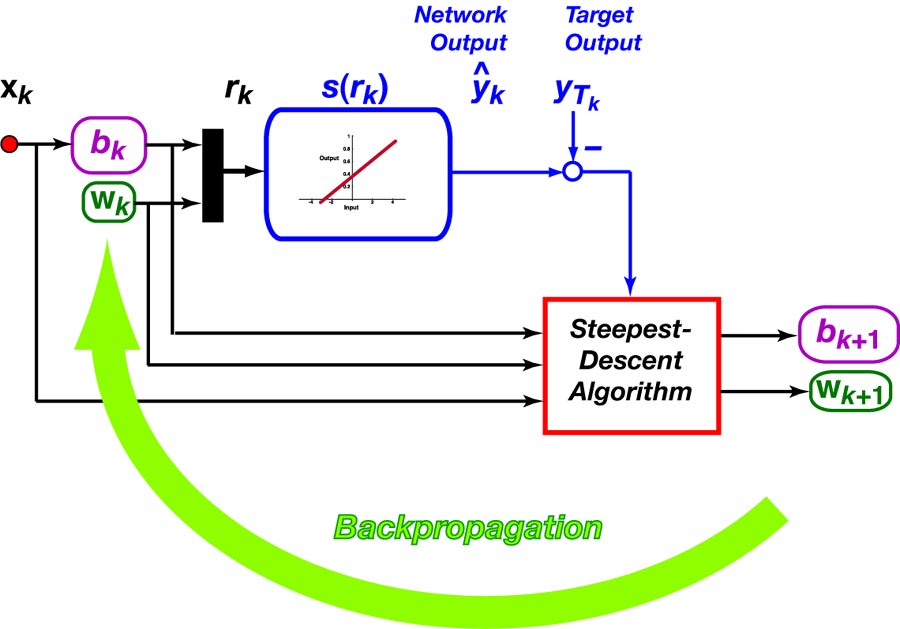
- Autonomous sub-scale helicopter
- Anthropomorphic robots
- Autonomous undersea vehicles
- Robots for space exploration and development
- Neural network control of non-linear systems
- Neural network analysis of DNA microarrays
- Intelligent control systems
- Biological Informatics: Modeling, Dynamics, and Control
- System modeling and control of disease processes
- Cooperating robots for manufacturing and assembly
- Cooperative Control of Natural and Engineered Groups
- Flight research with model aircraft
- System Identification
- Nonlinear Tracking Control
- Computational Intelligence

- Intelligent transportation systems
- Financial management and risk analysis
- Dynamic resource management
- Optimal design
- Signal and image processing

- The role of simplicity in reasoning by machines
- Machine learning
- Default reasoning (or nonmonotonic reasoning) in artificial intelligence
- Inference, reasoning, problem solving
- Neural network (connectionist) modeling of cognitive functions
- In vivo imaging of brain function, using fMRI, EEG, and optical methods
Atypical Undergraduate Independent Research Project
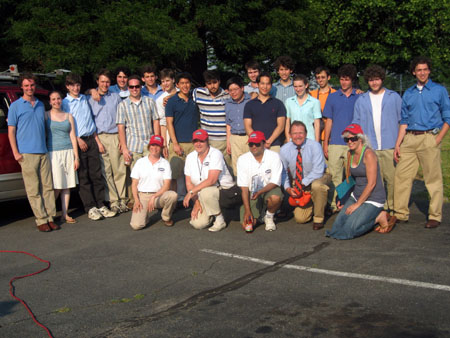
 The Princeton Autonomous Vehicle Engineering Team (PAVE) has developed autonomous vehicles for the DARPA Grand Challenge events and the Intelligent Ground Vehicle Competition. The PAVE team members are undergraduates drawn from several departments. Their lead faculty adviser is Alain Kornhauser, Professor of Operations Research and Financial Engineering and member of the Robotics and Intelligent Systems program committee.
The Princeton Autonomous Vehicle Engineering Team (PAVE) has developed autonomous vehicles for the DARPA Grand Challenge events and the Intelligent Ground Vehicle Competition. The PAVE team members are undergraduates drawn from several departments. Their lead faculty adviser is Alain Kornhauser, Professor of Operations Research and Financial Engineering and member of the Robotics and Intelligent Systems program committee.

 CLICK HERE to see descriptions of THESIS AND INDEPENDENT WORK PROJECTS that have been suggested for the 2010-2011 academic year.
CLICK HERE to see descriptions of THESIS AND INDEPENDENT WORK PROJECTS that have been suggested for the 2010-2011 academic year.
 STUDENT PROFILE: Princeton University Students CLICK HERE to let us know of your interest in the Robotics and Intelligent Systems Program.
STUDENT PROFILE: Princeton University Students CLICK HERE to let us know of your interest in the Robotics and Intelligent Systems Program.

LINKS to RELATED SITES
Tools and Concepts
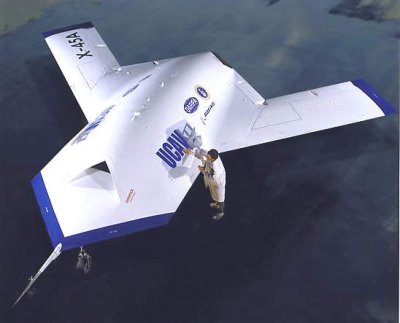
Libraries and Technical Report Servers
Simulation, Instrumentation, and Robot Kits
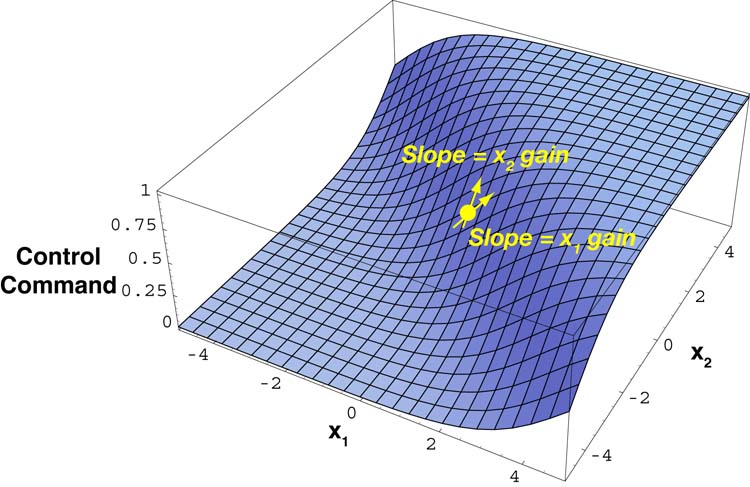
Programs, Organizations, and Contests

Robotics and Intelligent Systems Program Committee, 2010-2011
 For more information, please contact one of the following faculty members:
For more information, please contact one of the following faculty members:
- Jonathan Cohen, Professor, Psychology, 258-2696; jdc at princeton.edu. Cognitive science, neuroscience and neural network modeling.
- Bradley Dickinson, Professor, Electrical Engineering, 258-4644; bradley at princeton.edu. Systems theory, signal processing, neural networks, large-scale and distributed systems.
- Gilbert Harman, Professor, Philosophy, 258-2823; harman at princeton.edu. Artificial intelligence, philosophy of cognitive science.
- Yannis Kevrekidis, Professor, Chemical Engineering, 258-2818; igkevrek at princeton.edu. Nonlinear dynamical systems, chemical and biological processes.
- Alain Kornhauser, Professor, Operations Research and Financial Engineering, 258-4657; alaink at soil.princeton.edu. Computer graphics, robotics, transportation system analysis.
- Sanjeev Kulkarni, Professor, Electrical Engineering, 258-6727; kulkarni at princeton.edu. Machine learning, pattern recognition, statistical inference, image processing, information and communication theory.
- Michael Littman, Professor, Mechanical and Aerospace Engineering, 258-5198; mlittman at princeton.edu. Human bi-pedal locomotion, parallel processing, distributed real-time control, rehabilitation engineering.
- Stephen Lyon, Professor, Electrical Engineering, 258-3500; lyon at princeton.edu. Semiconductor devices.
- Daniel Nosenchuck, Associate Professor, Mechanical and Aerospace Engineering, 258-5136; dan at princeton.edu. Mechanical design.
- Daniel Osherson, Professor, Psychology, 258-1113; osherson at princeton.edu. Inductive logic, scalable algorithms, brains, machines, and minds.
- Peter Ramadge, Professor, Electrical Engineering, 258-4645; ramadge at princeton.edu. System theory, discrete systems, adaptive and stochastic systems, control theory.
- Szymon Rusinkiewicz, Assistant Professor, Computer Science, 258-7479; smr at princeton.edu. Computer graphics and vision.
- Robert Schapire, Professor, Computer Science, 258-7726; schapire at cs.princeton.edu. Machine learning, artificial intelligence.
- Robert F. Stengel, Director. Professor, Mechanical and Aerospace Engineering, 258-5103; stengel at princeton.edu. Intelligent control systems, aerospace dynamics.
- Erik H. VanMarcke, Professor, Civil and Environmental Engineering, 258-5896; evm at princeton.edu. Stochastic systems and random media; risk assessment and management.

http://www.princeton.edu/~stengel/RIS.html
Last updated August 10, 2010.
Copyright 2010 by Robert F. Stengel. All rights reserved.
The Certificate Program in Robotics and Intelligent Systems is designed for Princeton undergraduate students who are interested in pursuing careers or graduate education in three general areas:










 The Princeton Autonomous Vehicle Engineering Team (PAVE) has developed autonomous vehicles for the DARPA Grand Challenge events and the Intelligent Ground Vehicle Competition. The PAVE team members are undergraduates drawn from several departments. Their lead faculty adviser is Alain Kornhauser, Professor of Operations Research and Financial Engineering and member of the Robotics and Intelligent Systems program committee.
The Princeton Autonomous Vehicle Engineering Team (PAVE) has developed autonomous vehicles for the DARPA Grand Challenge events and the Intelligent Ground Vehicle Competition. The PAVE team members are undergraduates drawn from several departments. Their lead faculty adviser is Alain Kornhauser, Professor of Operations Research and Financial Engineering and member of the Robotics and Intelligent Systems program committee.
CLICK HERE to see descriptions of THESIS AND INDEPENDENT WORK PROJECTS that have been suggested for the 2010-2011 academic year.
STUDENT PROFILE: Princeton University Students CLICK HERE to let us know of your interest in the Robotics and Intelligent Systems Program.

